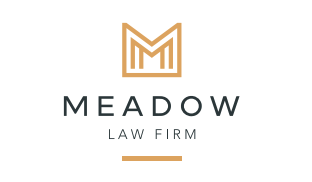Susan B. (0:00:06) – Hello, everyone. Welcome to another episode of Tort Talk Thursday. As always, every week, Joe, happy for you to take time to connect with me and the industry and give us the latest and greatest updates on mass tort.
Joe F. (0:00:15) – Thanks for having me, Susan. I always love speaking with you. A lot going on this week with mass torts, so really excited to get into it.
Susan B. (0:00:30) – Yeah. Great. Hey. Right before we dive into the updates, I just wanna thank today’s sponsor of Torch Talk Thursday, which is Shield Legal. Shield Legal provides the highest quality leads in the industry. And personally, having worked with them for so long, I can attest to the quality and their minimal fallout rates. I think one of the important values to me is that they approach every relationship with a true partnership mentality versus just another vendor in the space. So if you’re looking for great leads and a new partner, I highly suggest and recommend reaching out to Shield Legal. With that said, Joe, why don’t you start us off and talk a little bit about what you’ve heard as it relates to the Bard settlement?
Joe F. (0:01:15) – Yeah, Susan. So the one that we’ve all been waiting for here is the barred hernia mesh MDL settlement. We had a recent development. A law firm, two law firms actually filed a motion recently here to file under seal the qualified settlement to set up the QSF. So what that is, the document that’s gonna put a point who’s gonna be in charge of the money, and it also is gonna have the MSA, the master settlement agreement in there. This settlement is not a global yet. It’s gonna involve only these two firms who I understand have a couple 100 of cases. They don’t have the hugest inventories, but it’s a good sign for all of us. It’s showing us that cases are being resolved. We heard a couple of years ago, several 1,000 Bard cases got settled outside of the MDL. So we’re all gonna be waiting and watching the docket over the next couple weeks to see if there’s a similar filing by leadership establishing a QSF and then an MSA for all cases, which we’re hoping is gonna be the MDL and also Rhode Island. So stay tuned for that.
Susan B. – Great. Let’s talk a little bit about Purdue. What are you hearing of this week? We all know the Supreme Court bankruptcy and the ruling. Why don’t you share and provide a little update there?
Joe F. – Yeah. It’s really rare that we have a mass tort case make it all the way up to the Supreme Court, but we just had that, and the decision came down. So, basically, as everybody knows, we had these opioid cases, and one of the main defendants was Purdue, and their owners were the slackers. So, basically, what was going on was part of the bankruptcy. There was a bankruptcy plan in place, but then the Biden administration objected to that. And, basically, they were saying that having a third party release, the slackers who themselves were not filing for bankruptcy as part of the plan, that was improper. And in a surprising ruling, the conservative court in a 5-4 split made up of some conservatives and some liberal appointees ruled and said that the bankruptcy could not go forward. So, basically, what this means is that the bankruptcy plan is blown up now. We’re gonna have to go back to the drawing board. It’s gonna take more time and more money now for the slackers to put in, and so that’s a little bit disappointing for that. Overall, though, we’re hoping this could have some positive developments in mass towards going forward, standing for the premise that the bankruptcy court is not to be used by non-bankrupt entities. We’re looking at you, Johnson and Johnson, down the line here for this talc filing. How it plays out and whether there’s a narrow reading, we’ll see likely in the Boy Scouts coming up or if there’s gonna be a broader reading, which we’re hoping for, making it harder for companies to discharge some of their liabilities and move forward with some of these abuses of the bankruptcy system. So a huge ruling. We’ll see how the chips fall in the coming weeks.
Susan B. (0:03:51) – So it sounds like, Joe, initially sounded disappointing, but really it’s wait and see how, like you said, how the chips fall.
Joe F. (0:04:00) – Yeah. It’s disappointing a little bit for the people involved in this litigation
and those people who need the money to help the opioid epidemic, but broad broader picture down the line, it could be good for all of us in this space.
Susan B. – Mhmm. Okay. And then lastly, let’s touch base on any new developments with the Uber sex abuse cases.
Joe F. – Uber sex abuse cases are heating up, so we have them out in California and in MDL in state court. As you know, Uber tried to get all of the cases dismissed. They’re saying that their terms of agreement, which have a nonconsolidation consent prevented an MDL or the coordinated actions to be filed. We ended up winning on that. Now Uber is seeking, interlocutory appeal of that. Meanwhile, all of that’s going on. We’re fighting that. But, fortunately, the judges are pushing the cases forward. They’re not delaying discovery. Things are moving forward, and it looks like this time next year in state court, we’re gonna have our first Uber trial. So instead of arguing about some of these procedural issues, we’ll really get into some of the facts of the case, which are pretty horrific for Uber.
Susan B. (0:05:02) – Right. Well, Joe, as always, grateful for your time. Thank you for spending a little bit of time, talking about the updates and insights. I hope you have a great day!
Joe F. – Thanks for having me, Susan.





